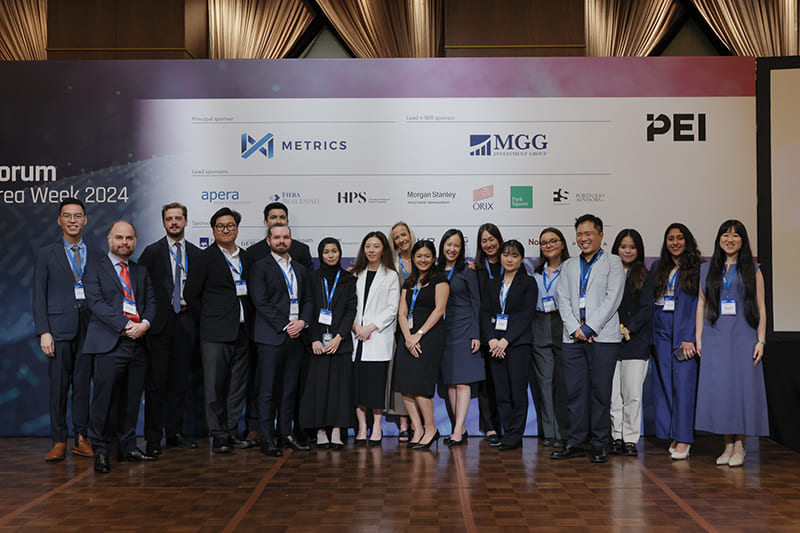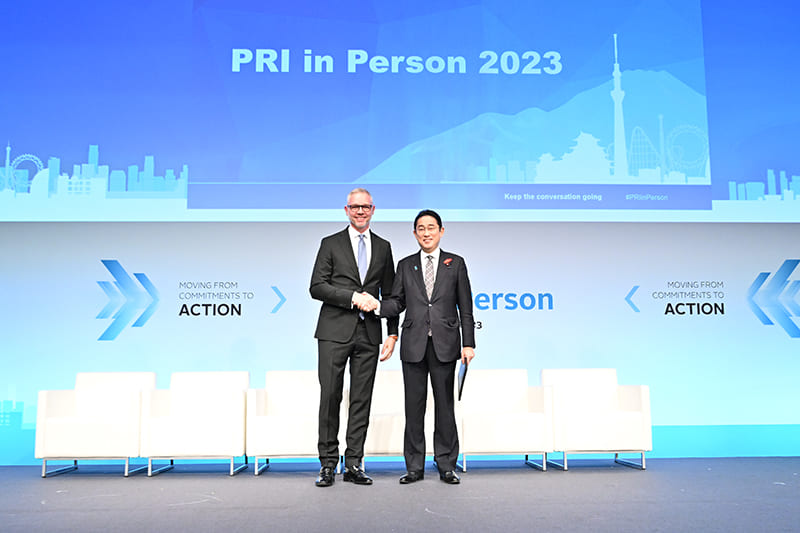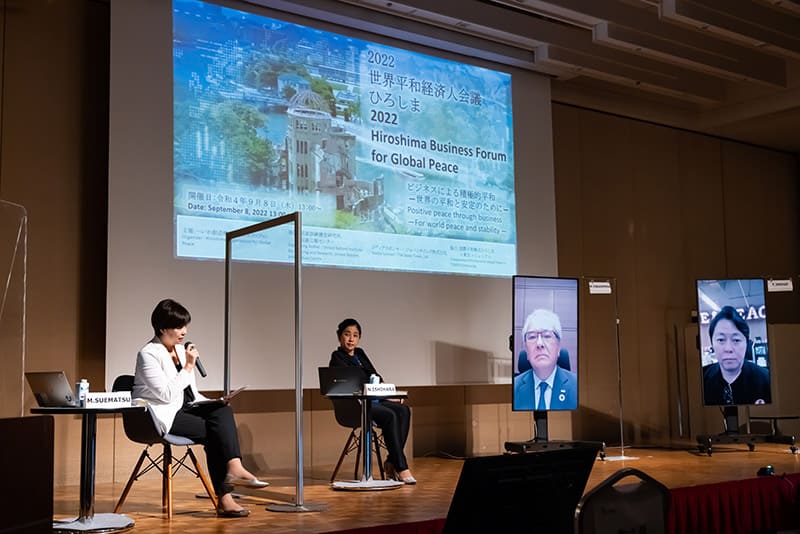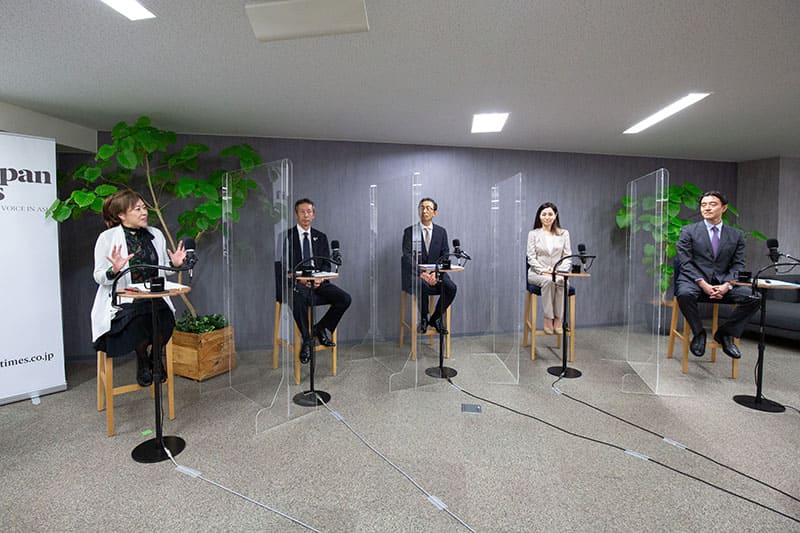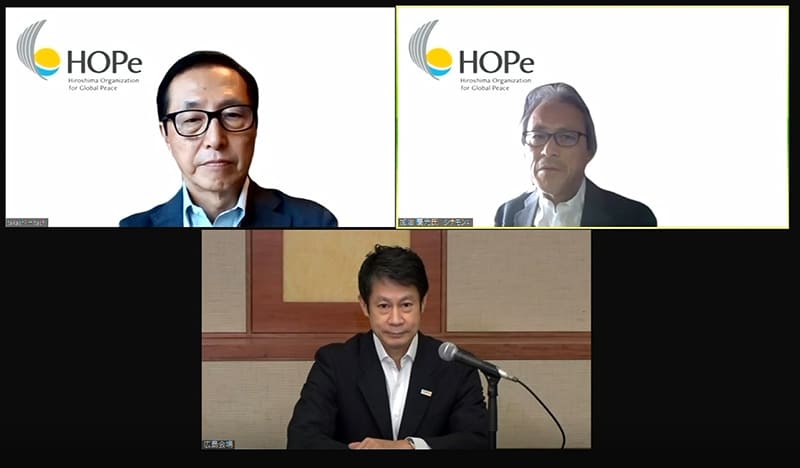August 30, 2021
Kirirom Global Forum examines investment and social impacts
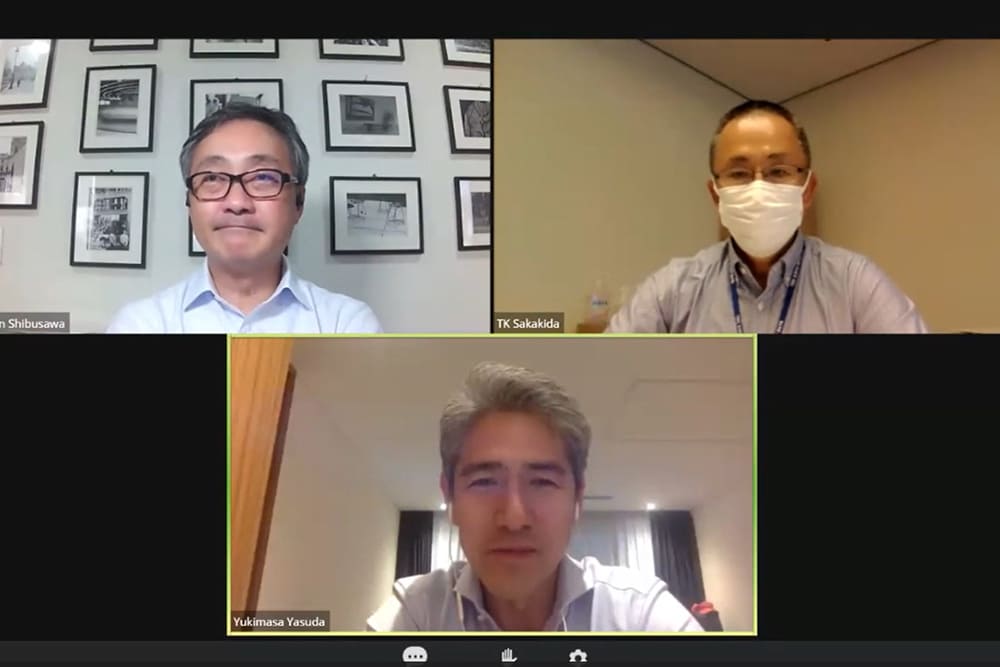
Kirirom Group, a network of companies in Singapore, Cambodia and Japan that focuses on startup studio business and regional development, conducted the Kirirom Global Forum 2021 Summer from Aug. 9 to 11. Until last year the event was held at the Kirirom Institute of Technology in Cambodia, which is also run by the group, but this time all 50 panel discussion sessions took place online.
Each session dealt with topics from one of six themes: global business, global investment, global education, working globally, social issues and world-changing technologies. More than 150 panelists from various industrial sectors, government organizations and academic institutions shared their insights to inspire and encourage the online audience to think about how one can play an active role on a global level and create the business opportunities and connections necessary to be internationally successful.
One of the sessions focused on movements in finance and industrial sectors toward the realization of carbon neutrality. Tsutomu Sato, director of the Japan Bank for International Cooperation’s Global Environment Division and deputy director general of its New Energy and Power Finance Department II, said the private sector is quicker to adopt changes: “The public started to change following the trend in the financial sector. Why the financial sector instead of politics? It is because conflicts of interest pertain to international politics, which makes it harder for all countries to make terms with each other.”
Yoshiki Hiruma, of the Development Bank of Japan’s 2050 Growth Strategy Headquarters and Industry Headquarters, said it is also important to steer national governance toward decarbonization, but “There are so many other issues that weigh heavily on society and the economy, too. We need to ensure that a solution for one of the problems will not work against the others.”
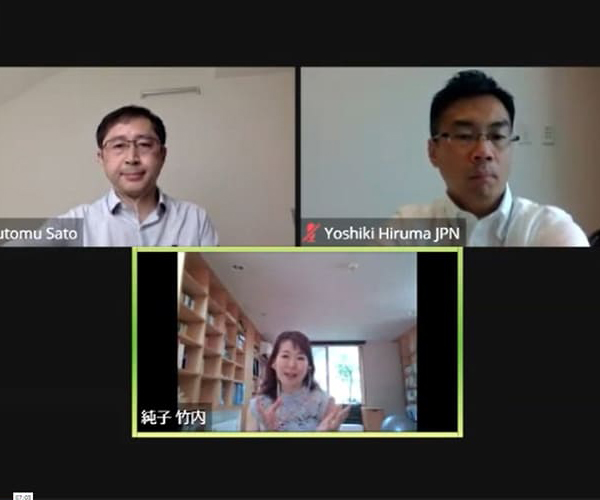
Sumiko Takeuchi, a senior fellow and member of the board of directors at the International Environment and Economy Institute as well as a co-founder and president of U3 Innovations LLC, also pointed out that climate change is not the only issue that the world is facing, and making drastic changes in only this field could cause distortions in other areas. She stressed that a sense of balance and a pluralistic perspective are necessary. “Global issues are diverse — so are their solutions,” she said, explaining that Japan, a country of yao yorozu no kami — “8 million gods” found in every part of nature and human life — should take the initiative in advocating to the world that our goals should not be “climate change and 16 others.”
In a session moderated by Yukimasa Yasuda, the board group CFO of vKirirom Pte. Ltd., that focused on impact investment, Takayuki Sakakida, president of Kyoto Shinkin Bank, spoke of the kind of initiative that Japan should take: “Japan, as a country with social issues such as an aging population and a declining birthrate, should take the initiative in making the flow of money in both direct and indirect financing more impact-based.” Japanese people have always had, he said, “the sentiment of changing their actions for the Earth.”
On the other hand, he said, it is a pity that Japan’s contributions to the world have been poorly recognized. “Japan’s presence is not appreciated. We are good people but lack visibility. Human resources, ideas, originality — not much of anything is being sent out to the world from Japan.” He expressed hope that more Japanese money will be invested into areas with greater social impacts and that the world will value Japan for that.
Ken Shibusawa, founder of Commons Asset Management Inc. and a descendant of the industrialist Shibusawa Eiichi — the “father of Japanese capitalism,” who championed the principles of morality and business (rongo and soroban) — said Japanese capitalism has pursued the maximization of social value instead of profit since its beginning. “I think that the essence of impact investment already existed in modern Japan, where enterprises aimed to make profit not for its own sake but for making social impact,” he said. To pass on this idea and make its impact more visible on a global level, he stressed that Japan should invest more in developing countries.

